Robro Systems specializes in providing cutting-edge camera-based automatic inspection and monitoring solutions tailored for error-proofing and maintaining high-quality standards. Our leading product, Kiara, stands out as an advanced image-processing platform catering to various industries, particularly manufacturing. With Kiara, we’ve achieved a remarkable 90% reduction in manual inspection errors while offering affordability that surpasses existing systems by up to 30%.
Notably, Robro Systems’ Kiara excels as a high-performance web inspection system, capable of swiftly detecting a wide array of defects in real-time. It furnishes operators with a comprehensive defect map, enabling them to fine-tune production processes for optimized efficiency and unwavering quality control.
Moreover, our system boasts seamless integration capabilities with any production line, garnering widespread adoption among major corporations and production facilities across India. Its applications span across inspecting textiles, labels, sheets, and more, leading to a substantial 70% reduction in waste and ensuring a flawless 100% quality control rate.
In an exclusive discussion with The Interview World, Mukesh Kumar Sharma, Vice President (Sales & Marketing) at Robro Systems, emphasized how Kiara, an AI-driven visual computing platform, revolutionizes the textile industry by streamlining defect detection and significantly cutting labor and recycling costs. Here are the pivotal insights gleaned from his interview.
Q: What strategies and technologies is your company employing to tackle defects management in the textile industry, particularly through the implementation of AI-driven computer vision systems?
A: The textile industry, renowned for its labor-intensive nature, often faces challenges in ensuring the quality and efficiency of production processes. Manual inspection methods, while long-standing, are inherently slow and susceptible to errors inherent in human judgment. Recognizing the need for a more reliable and efficient approach, we have embraced the integration of artificial intelligence (AI) technologies alongside advanced camera systems. This innovative combination enables us to achieve unparalleled accuracy, surpassing the 99% mark, and significantly accelerating the inspection process.
Traditionally, factories have relied on manual labor for defect detection across multiple critical stages of production, including manufacturing, sorting, counting, and packaging. However, this reliance comes at a cost – both in terms of time and resources. Manual inspections are not only time-consuming but also lack the cost-effectiveness required in today’s competitive landscape. In response, our AI-based solution, Kiara, emerges as a transformative force in the industry. With its cloud reporting tools and real-time data analytics capabilities, Kiara offers a comprehensive approach to error-proof production. By streamlining line monitoring and inspection processes, Kiara represents a paradigm shift towards effortless factory automation, promising enhanced efficiency, accuracy, and ultimately, profitability for textile manufacturers.
Q: What is the distribution of defects in materials produced by textile companies?
A: Defects are an inevitable aspect of manufacturing processes, underscoring the critical importance of quality inspections. Without such assessments, flaws can persist in products, jeopardizing their integrity and customer satisfaction. Understanding the diverse nature of defects, we recognize that each fabric harbors its own unique defect family, stemming from various sources.
These sources range from issues with the loom to lapses in operator attention and occasional machine malfunctions. To combat these challenges, we leverage cutting-edge technology in the form of computer vision. This enables us to systematically collect defect data from our database, facilitating a granular understanding of each defect and its associated family.
As our system meticulously inspects machinery, it captures and categorizes defect data, providing valuable insights into the prevalence of specific defects within each family. Through this AI-driven approach, we consolidate defect distribution data, empowering us to deliver comprehensive reports to our clients.
These reports, provided on a daily, weekly, and monthly basis, serve as invaluable tools for our clients, enabling them to implement targeted corrective measures. Armed with this information, they can proactively address defects, enhancing product quality and bolstering customer satisfaction.
Q: What is the quantifiable reduction in effort or labor cost attributed to the implementation of this product?
A: During the production of plastic fabric or FIBC polypropylene fabric, defects often arise in both the cutting and looming processes. These defects contribute to a significant quantity of material for recycling, typically falling within the industry standard range of 3% to 12%, which varies based on the grade being produced.
Here, we implement measures to surpass standard recycling rates by saving more than 60% to 70% of the material earmarked for recycling. This constitutes a substantial waste reduction, alongside considerable savings in labor costs.
Moreover, the benefits extend beyond waste reduction. By minimizing the amount allocated for recycling, we simultaneously decrease recycling costs. This reduction, combined with savings in labor expenses, results in an overall reduction of around 70% in recycled waste.
Q: What is your customer base within the Indian textile industry, and do you also serve international clients?
A: At present, our client base comprises esteemed entities such as COMSYN, Kanpur Plastipack, and MB Industries, with whom we engage in supplying flexible intermediate bulk containers (FIBC). Concurrently, we have forged partnerships for point-of-sale (POS) ventures with Candor Textiles and Plastene. Our primary focus in the initial phase revolves around the production of woven polypropylene fabric, a cornerstone of the FIBC industry.
It’s noteworthy that the FIBC sector wields substantial influence in India, ranking as the second-largest globally, trailing only behind China. Through our involvement in this sector, we have successfully served the needs of approximately 25 to 30 major customers, each employing multiple machines from our inventory.
Looking ahead, our expansion horizons extend to Bangladesh, where we will dispatch our systems next month, aiming to tap into its expansive textile market. Although our operations currently center in India, we are gearing up for international expansion, slated to commence from the forthcoming month.
Q: What is your current market size, and how do you envision it evolving over the next five years?
A: In examining the textile industry, our attention gravitates toward the relatively narrow domain of polypropylene. However, this focus belies the vastness of the overall inspection market, which stands at approximately Rs. 8,000 crores, experiencing a robust 15% compound annual growth rate. Despite the market’s considerable magnitude, our present engagement is confined to a mere fraction of its potential. Recognizing this limitation, we are strategically diversifying our reach into untapped sectors, gradually expanding our market presence. Through this proactive approach, we aim to not only broaden our business horizons but also cultivate new revenue streams, fortifying our position in the industry.
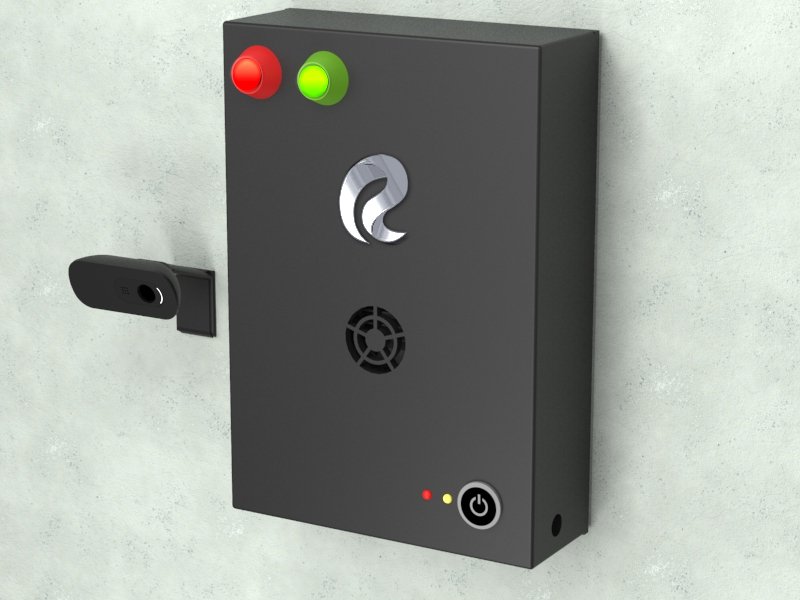
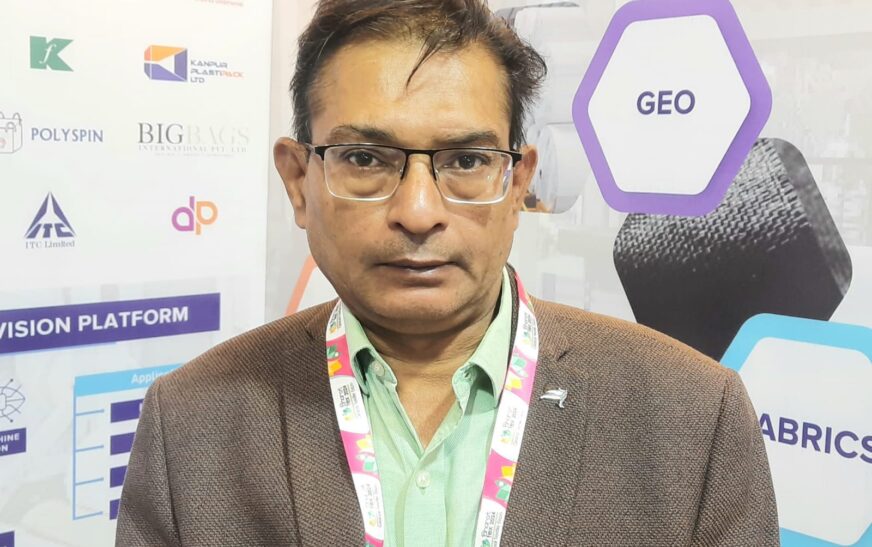
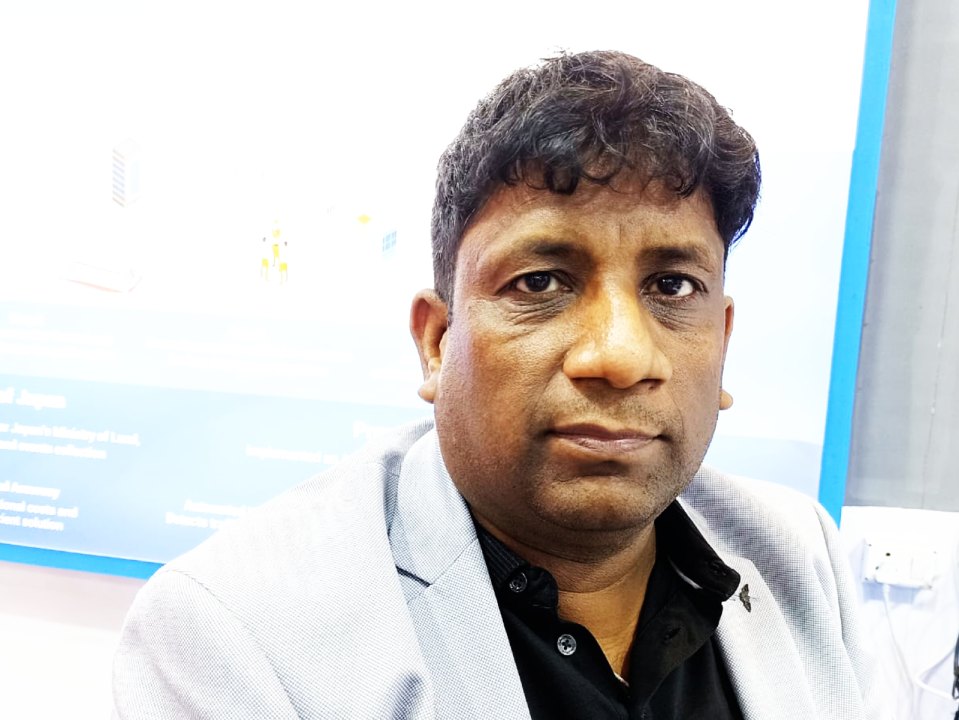
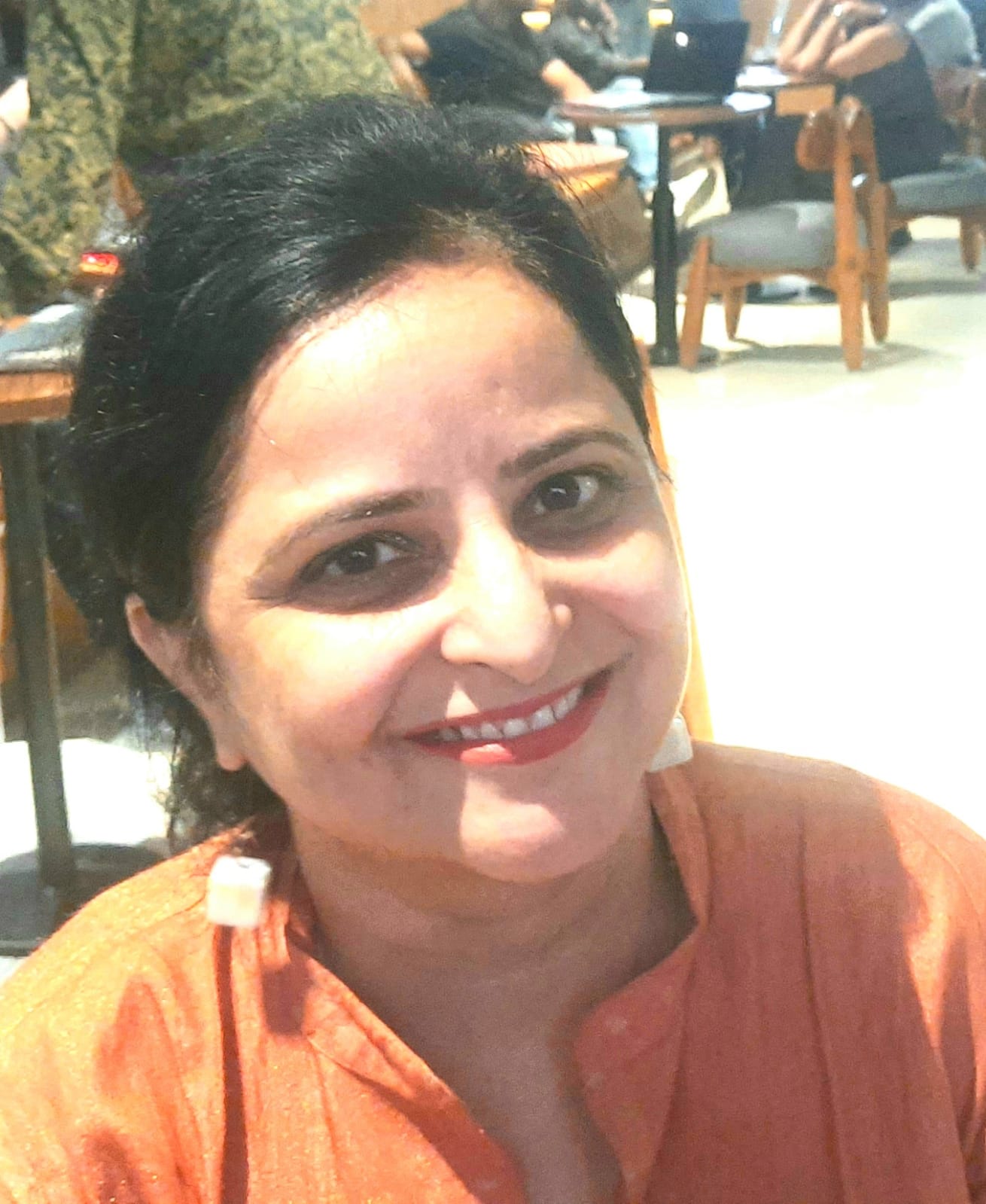
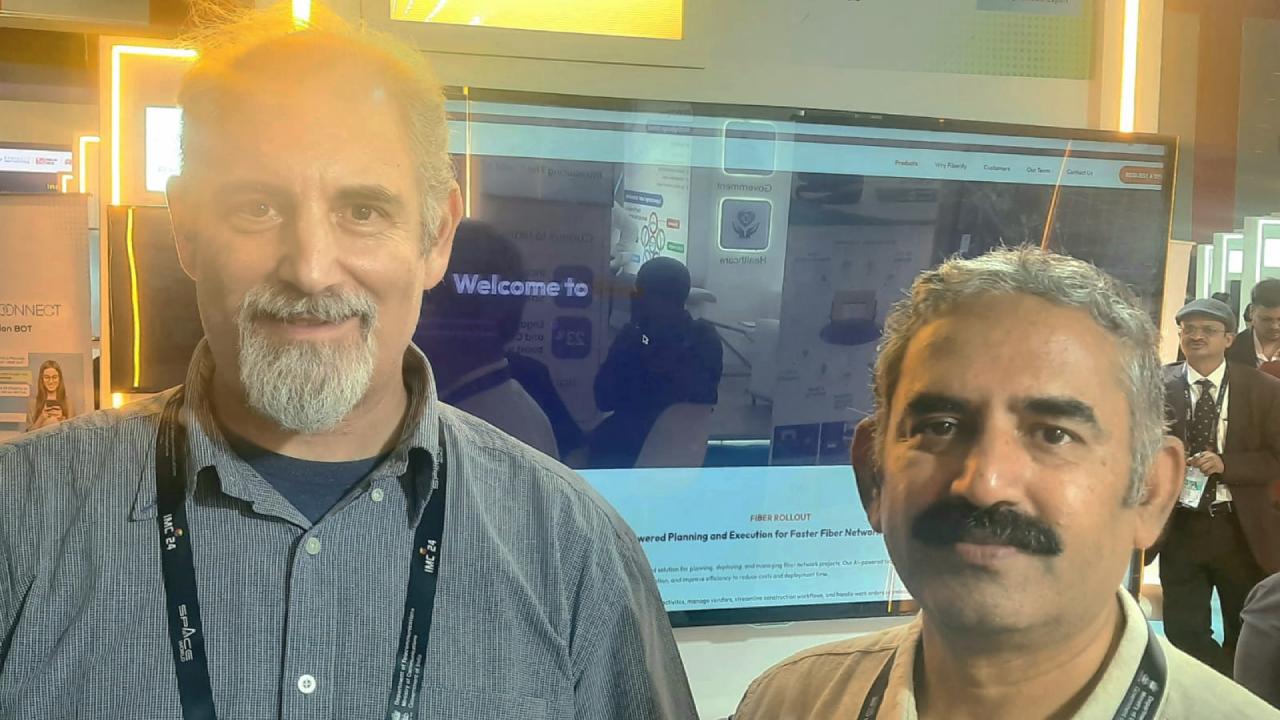
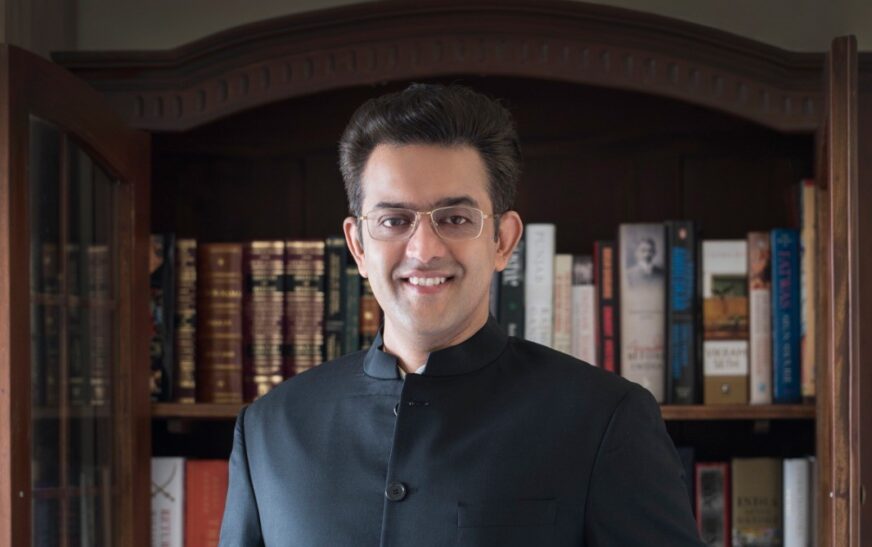
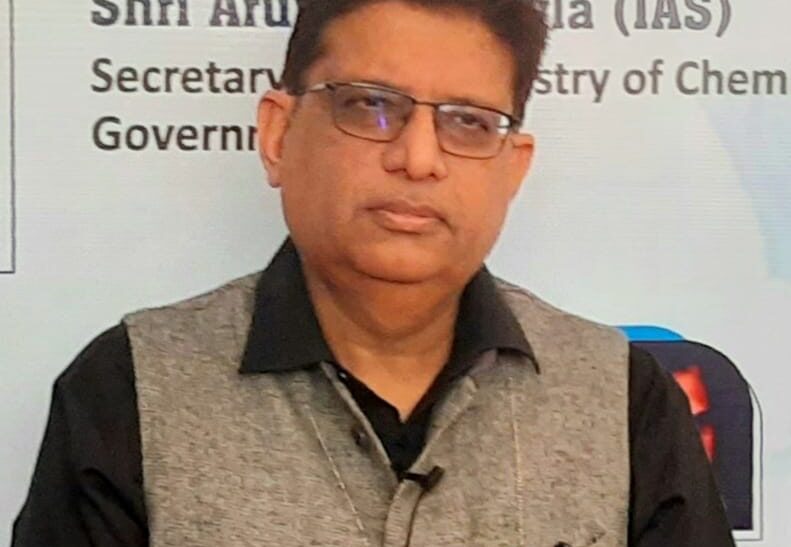
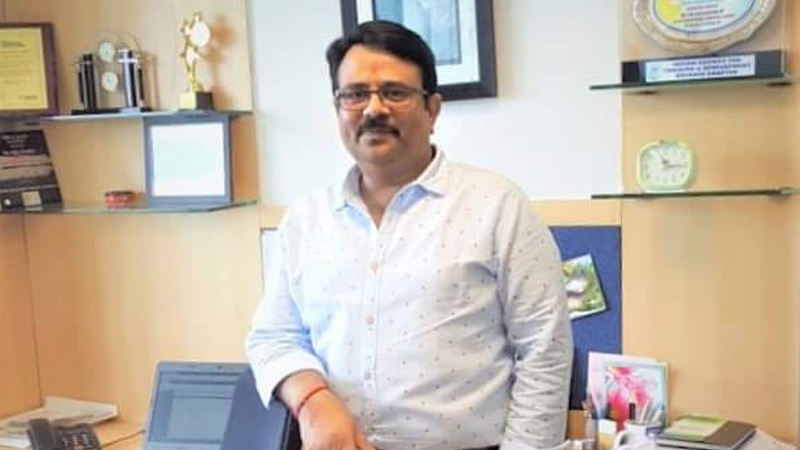
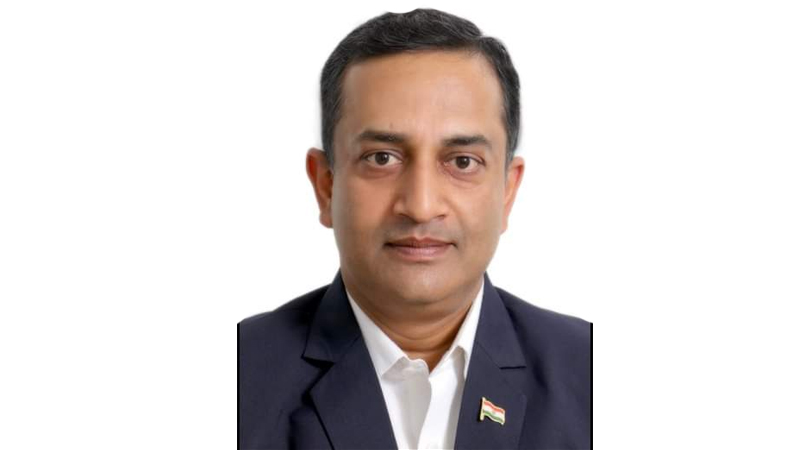
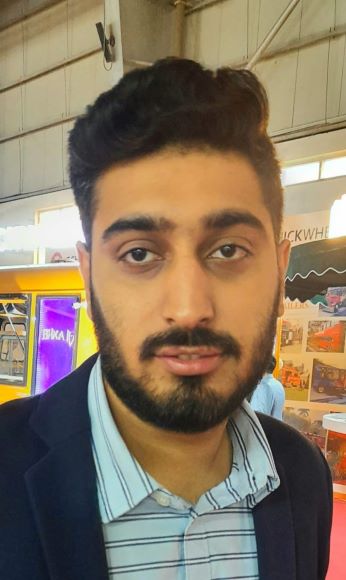
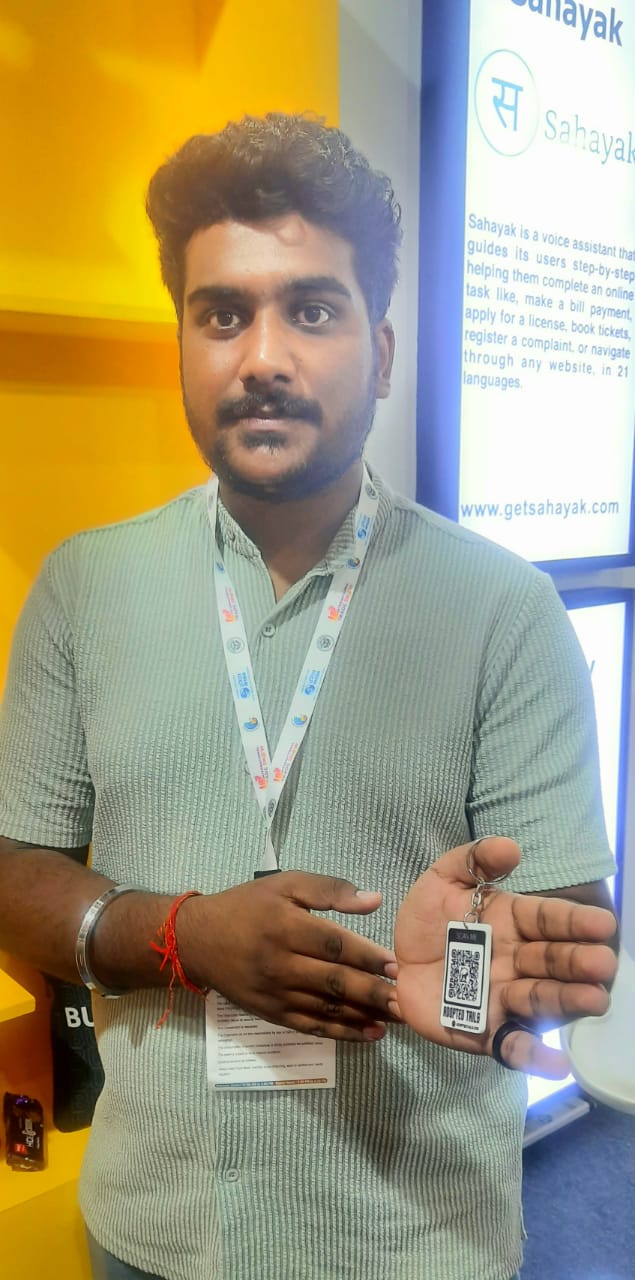
66 Comments
Some times its a pain in the ass to read what website owners wrote but this website is very user genial! .
Simply wish to say your article is as astonishing. The clarity in your post is simply excellent and i could assume you are an expert on this subject. Fine with your permission allow me to grab your feed to keep up to date with forthcoming post. Thanks a million and please continue the gratifying work.
Hey There. I found your blog using msn. This is a really well written article. I’ll make sure to bookmark it and return to read more of your useful info. Thanks for the post. I will certainly return.
I’ve recently started a website, the information you offer on this website has helped me tremendously. Thank you for all of your time & work.
Very interesting info !Perfect just what I was searching for! “I have great faith in fools — self confidence my friends call it.” by Edgar Allan Poe.
An interesting discussion is worth comment. I think that you should write more on this topic, it might not be a taboo subject but generally people are not enough to speak on such topics. To the next. Cheers
I have been exploring for a little bit for any high quality articles or weblog posts on this kind of area . Exploring in Yahoo I eventually stumbled upon this site. Studying this info So i am glad to show that I have a very just right uncanny feeling I found out exactly what I needed. I so much undoubtedly will make sure to do not put out of your mind this website and provides it a glance on a continuing basis.
Hello there, I discovered your blog by way of Google while searching for a comparable topic, your website came up, it seems to be great. I have bookmarked it in my google bookmarks.
Hi , I do believe this is an excellent blog. I stumbled upon it on Yahoo , i will come back once again. Money and freedom is the best way to change, may you be rich and help other people.
Hi, i believe that i saw you visited my web site so i got here to “go back the choose”.I am trying to in finding things to enhance my website!I suppose its good enough to use a few of your ideas!!
Those are yours alright! . We at least need to get these people stealing images to start blogging! They probably just did a image search and grabbed them. They look good though!
I have been reading out a few of your articles and i must say pretty good stuff. I will definitely bookmark your blog.
very nice publish, i certainly love this website, carry on it
Woh I like your articles, saved to favorites! .
I do not even know how I ended up here, but I thought this post was good. I don’t know who you are but certainly you’re going to a famous blogger if you are not already 😉 Cheers!
Some genuinely interesting info , well written and broadly speaking user pleasant.
Your place is valueble for me. Thanks!…
Hello! This is my first comment here so I just wanted to give a quick shout out and say I really enjoy reading through your articles. Can you suggest any other blogs/websites/forums that deal with the same topics? Thanks a lot!
I am not rattling fantastic with English but I find this real easygoing to read .
certainly like your web-site however you have to take a look at the spelling on quite a few of your posts. A number of them are rife with spelling issues and I find it very troublesome to tell the truth then again I will certainly come back again.
Thanks , I have just been looking for information approximately this subject for ages and yours is the greatest I have came upon so far. But, what in regards to the conclusion? Are you certain in regards to the source?
Great post. I was checking continuously this blog and I’m impressed! Extremely helpful information specifically the last part 🙂 I care for such info much. I was looking for this particular info for a very long time. Thank you and good luck.
Hey there I am so happy I found your blog page, I really found you by error, while I was searching on Google for something else, Anyways I am here now and would just like to say thanks for a remarkable post and a all round exciting blog (I also love the theme/design), I don’t have time to read it all at the minute but I have book-marked it and also added your RSS feeds, so when I have time I will be back to read a great deal more, Please do keep up the great job.
Excellent read, I just passed this onto a colleague who was doing some research on that. And he just bought me lunch since I found it for him smile So let me rephrase that: Thanks for lunch!
Utterly written content material, Really enjoyed reading through.
hello!,I really like your writing very a lot! percentage we keep up a correspondence extra approximately your article on AOL? I need an expert on this space to resolve my problem. May be that is you! Looking forward to peer you.
Some genuinely nice and useful info on this site, besides I think the layout holds fantastic features.
Pretty great post. I simply stumbled upon your blog and wished to say that I’ve really enjoyed browsing your blog posts. In any case I’ll be subscribing on your rss feed and I’m hoping you write again very soon!
Sweet site, super design, rattling clean and use pleasant.
When I originally commented I clicked the -Notify me when new comments are added- checkbox and now every time a comment is added I get four emails with the same comment. Is there any method you may remove me from that service? Thanks!
Absolutely written subject matter, Really enjoyed reading through.
Hey there, You have done an excellent job. I’ll definitely digg it and personally suggest to my friends. I’m sure they will be benefited from this site.
You actually make it seem so easy along with your presentation however I in finding this topic to be actually one thing which I feel I would by no means understand. It seems too complicated and extremely broad for me. I am having a look forward in your subsequent put up, I’ll try to get the grasp of it!
Some times its a pain in the ass to read what people wrote but this internet site is rattling user pleasant! .
Your place is valueble for me. Thanks!…
I was very pleased to find this web-site.I wanted to thanks for your time for this wonderful read!! I definitely enjoying every little bit of it and I have you bookmarked to check out new stuff you blog post.
You made some first rate factors there. I looked on the internet for the problem and found most people will go together with with your website.
I like this site very much, Its a very nice place to read and find information.
This web site is really a walk-through for all of the info you wanted about this and didn’t know who to ask. Glimpse here, and you’ll definitely discover it.
Just want to say your article is as amazing. The clarity to your publish is simply cool and that i could think you’re an expert on this subject. Well together with your permission allow me to seize your RSS feed to keep updated with drawing close post. Thanks one million and please continue the rewarding work.
It is really a great and useful piece of info. I am satisfied that you shared this helpful info with us. Please keep us up to date like this. Thanks for sharing.
Wow! Thank you! I constantly needed to write on my website something like that. Can I implement a part of your post to my blog?
You really make it seem really easy together with your presentation however I in finding this topic to be really something that I feel I might never understand. It seems too complex and very large for me. I am having a look ahead to your subsequent put up, I will try to get the cling of it!
Have you ever considered about including a little bit more than just your articles? I mean, what you say is fundamental and all. But just imagine if you added some great pictures or video clips to give your posts more, “pop”! Your content is excellent but with images and videos, this website could certainly be one of the best in its field. Amazing blog!
Keep functioning ,great job!
You actually make it appear so easy with your presentation however I to find this topic to be really something that I think I might never understand. It seems too complicated and very extensive for me. I am having a look forward for your next put up, I will try to get the hold of it!
Hey there! This is my first comment here so I just wanted to give a quick shout out and say I genuinely enjoy reading through your blog posts. Can you suggest any other blogs/websites/forums that go over the same subjects? Many thanks!
Excellent blog! Do you have any suggestions for aspiring writers? I’m hoping to start my own blog soon but I’m a little lost on everything. Would you suggest starting with a free platform like WordPress or go for a paid option? There are so many choices out there that I’m completely confused .. Any ideas? Thank you!
you may have an ideal blog here! would you wish to make some invite posts on my blog?
I just wanted to make a simple note in order to appreciate you for those unique strategies you are giving out on this site. My time-consuming internet investigation has at the end of the day been rewarded with brilliant content to write about with my neighbours. I ‘d admit that we site visitors are undoubtedly endowed to exist in a really good site with very many outstanding individuals with good points. I feel pretty happy to have discovered your webpages and look forward to really more awesome times reading here. Thanks again for a lot of things.
Youre so cool! I dont suppose Ive read something like this before. So good to find anyone with some authentic ideas on this subject. realy thank you for beginning this up. this web site is one thing that is needed on the web, somebody with a bit of originality. useful job for bringing something new to the web!
I am typically to blogging and i really admire your content. The article has actually peaks my interest. I’m going to bookmark your site and preserve checking for brand new information.
I like this website very much so much superb info .
The next time I read a blog, I hope that it doesnt disappoint me as much as this one. I mean, I know it was my choice to read, but I actually thought youd have something interesting to say. All I hear is a bunch of whining about something that you could fix if you werent too busy looking for attention.
I have recently started a site, the info you offer on this site has helped me greatly. Thank you for all of your time & work.
Hello.This article was really motivating, particularly because I was investigating for thoughts on this matter last Tuesday.
Thank you for sharing excellent informations. Your site is so cool. I am impressed by the details that you¦ve on this site. It reveals how nicely you perceive this subject. Bookmarked this web page, will come back for more articles. You, my pal, ROCK! I found simply the information I already searched everywhere and simply could not come across. What a great web-site.
Very clean site, thanks for this post.
You have brought up a very great points, thanks for the post.
whoah this blog is magnificent i love reading your articles. Keep up the great work! You know, many people are looking around for this info, you can aid them greatly.
Thank you for another great article. Where else could anyone get that kind of info in such a perfect manner of writing? I have a presentation next week, and I am on the search for such information.
I am constantly looking online for posts that can benefit me. Thank you!
you could have an amazing blog here! would you like to make some invite posts on my weblog?
This actually answered my problem, thanks!
I haven’t checked in here for a while since I thought it was getting boring, but the last few posts are great quality so I guess I’ll add you back to my everyday bloglist. You deserve it my friend 🙂
Those are yours alright! . We at least need to get these people stealing images to start blogging! They probably just did a image search and grabbed them. They look good though!